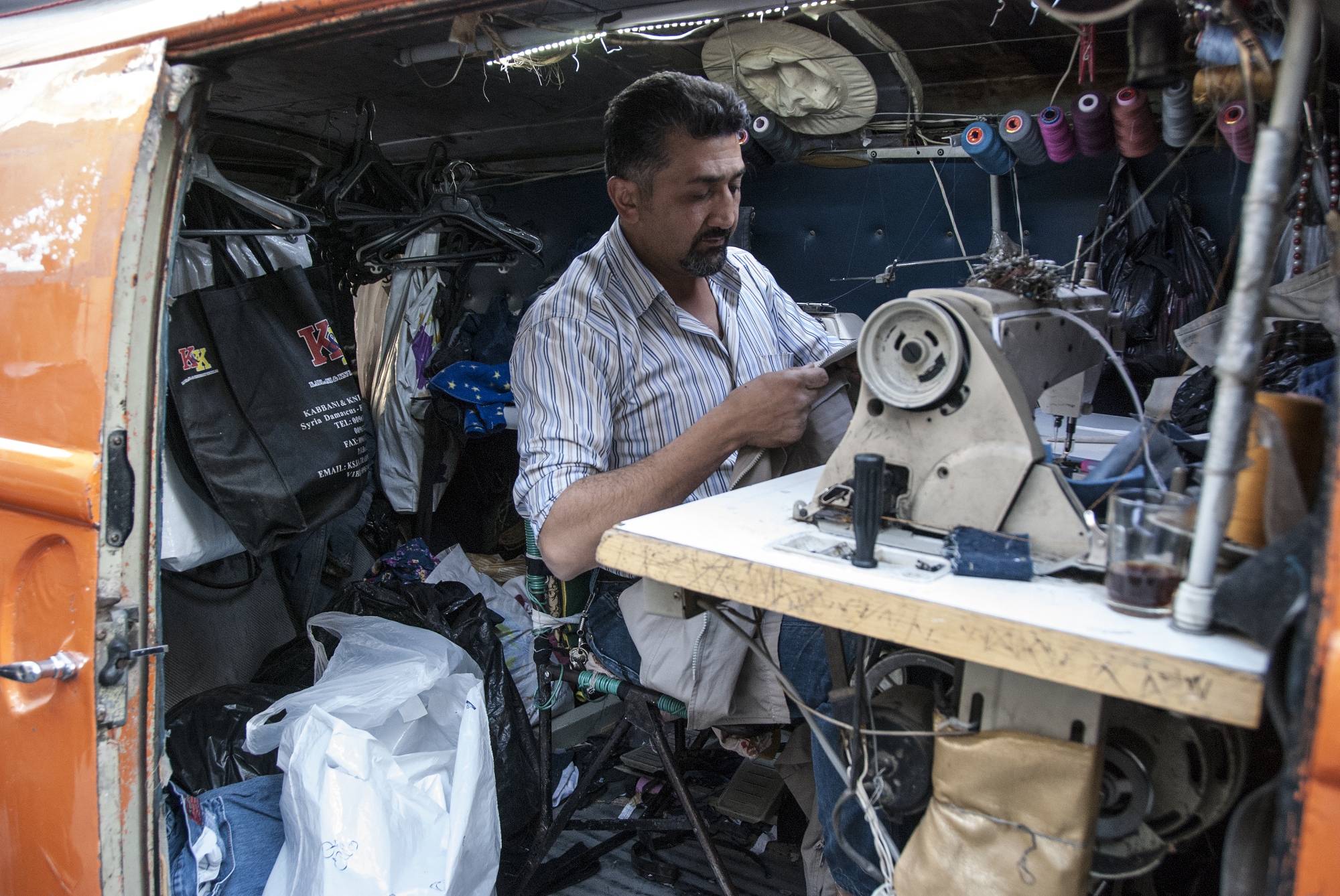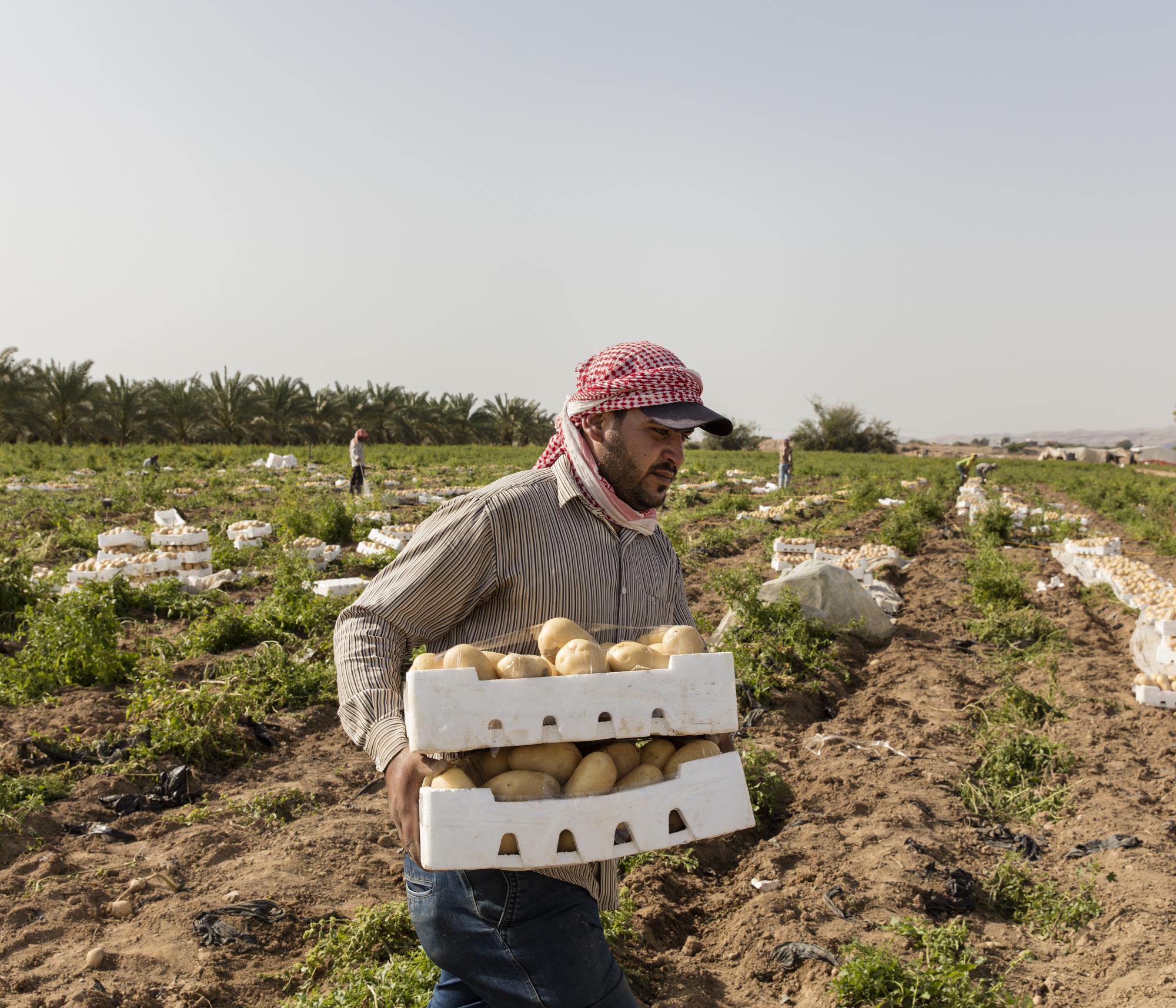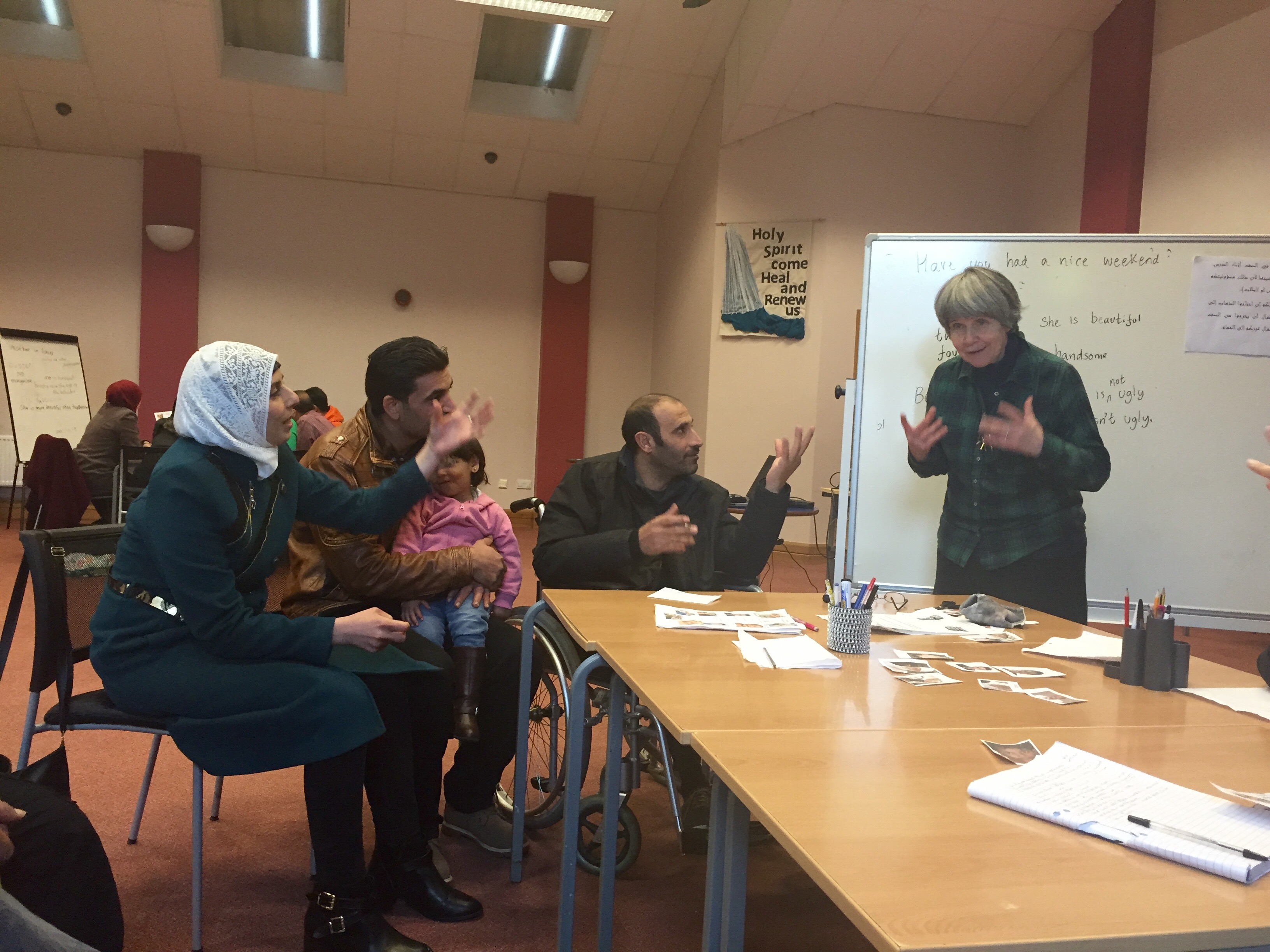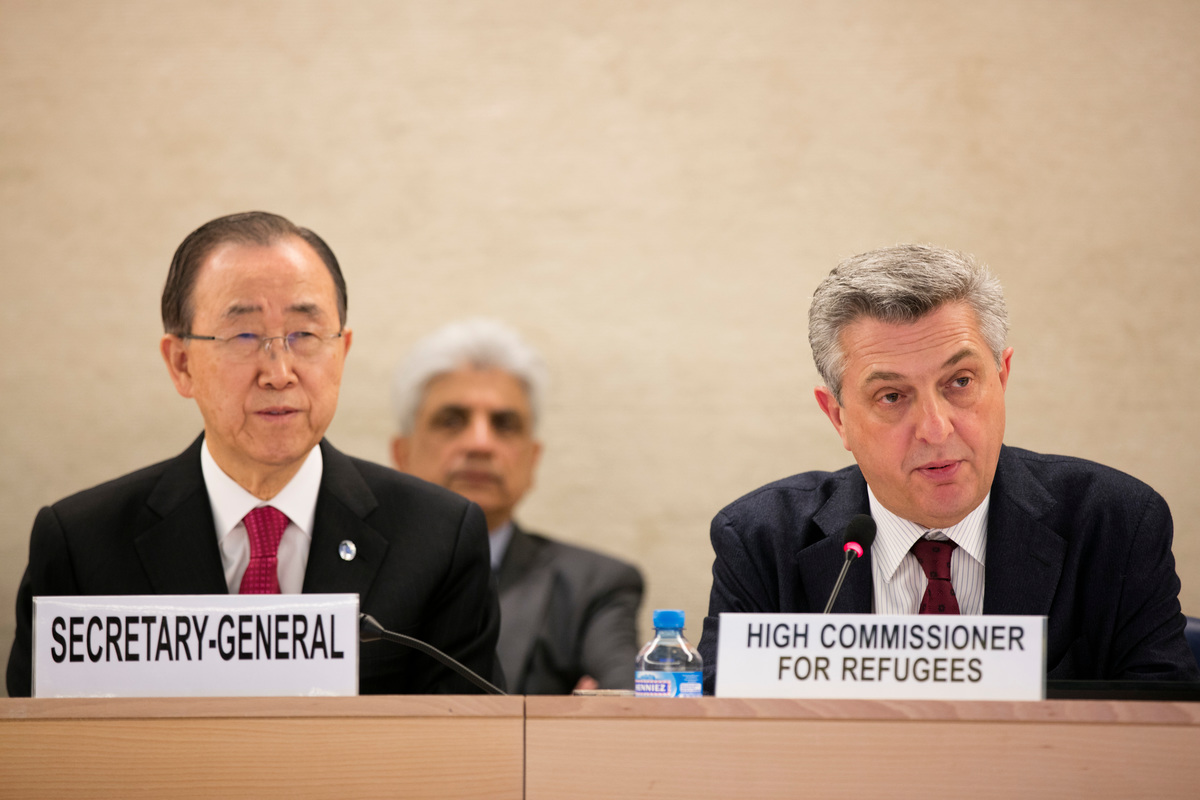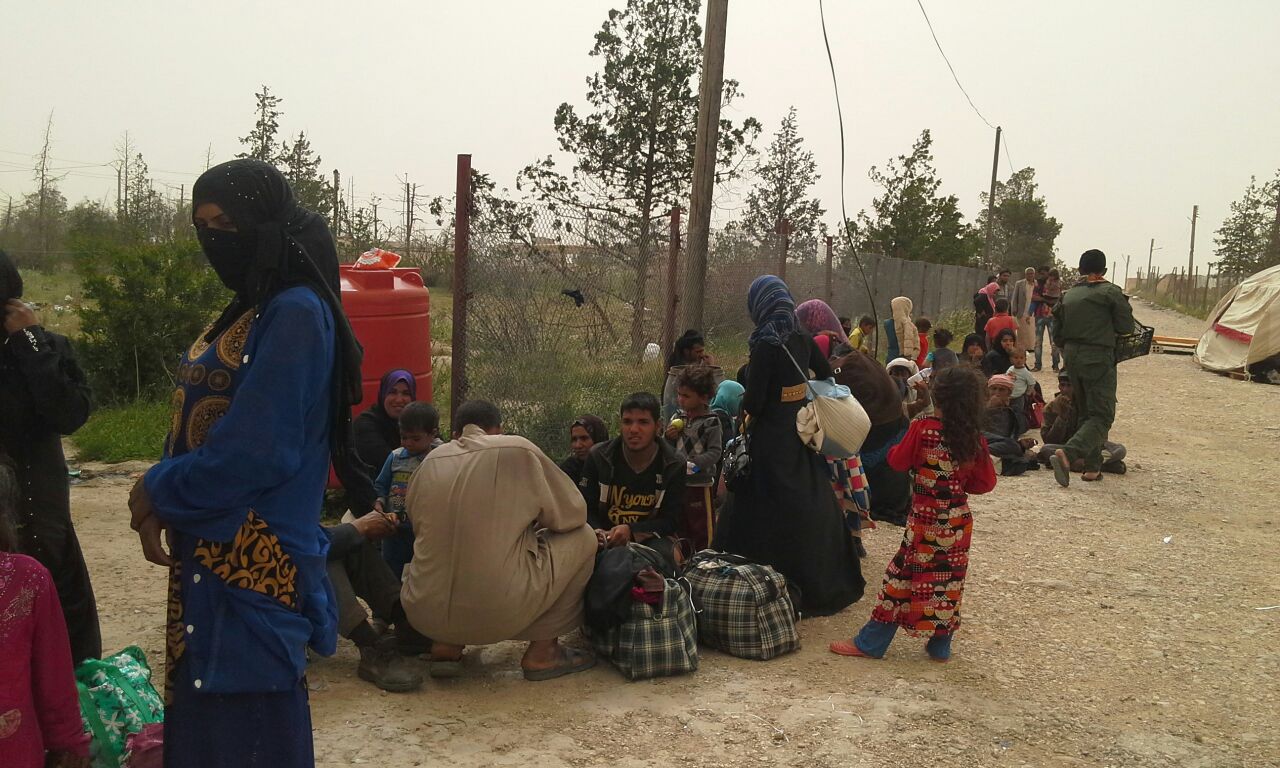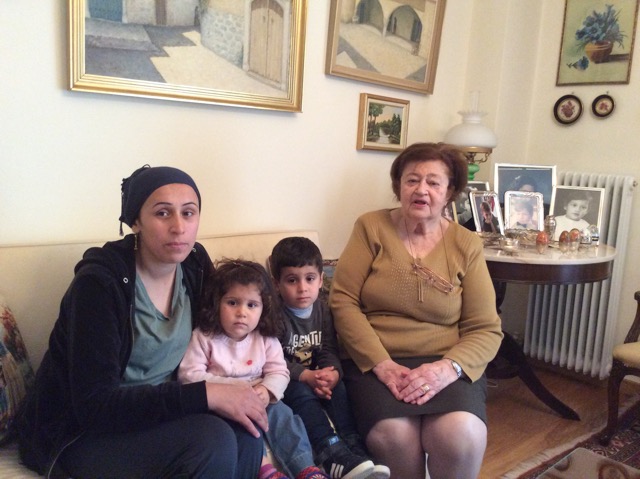UNHCR report shows health services for Syrian refugees increasingly overstretched
UNHCR report shows health services for Syrian refugees increasingly overstretched
A UNHCR report has found that the Syria refugee crisis is increasingly straining health services in surrounding countries, while refugees are themselves facing increasing difficulties in accessing the quality treatment they need - particularly those with chronic and other costly health conditions.
The report, which covers the first three months of 2013 in Iraq, Jordan, and Lebanon, shows that refugees need treatment for a wide range of both common and conflict-related conditions. These include injuries, psychological illnesses and communicable diseases (e.g., respiratory illnesses, diarrhea, skin and eye conditions) often found in other refugee settings worldwide plus other costlier and longer term chronic diseases such as diabetes, hypertension, and cardiovascular illnesses as well as expensive referral care that is more commonly diagnosed and treated in middle income countries.
With more than a million Syrian refugees in these three countries, and more than 1.4 million around the region so far, the health system problems are mainly two-fold: Firstly, and with low funding for the Syrian refugee crisis, the challenge of providing access to quality healthcare for Syrian refugees is growing - particularly for people living outside of camps. Secondly, the increasing numbers of people needing medical help is straining existing health services in each of the affected countries.
Both issues are a matter of serious concern to UNHCR. We continue, with our partners, to provide medical care for refugees in the camps in Jordan and Iraq. But for those refugees who live outside of camps, often in urban settings, the situation is more difficult. In Jordan and Iraq, healthcare costs for refugees are covered by governments, UNHCR and many other organisations; but providing expensive referral care, such as renal dialysis, orthopaedic surgery and cancer treatment is becoming much more difficult. In Lebanon, which has a largely privatized health care system and cost sharing is the norm, resource shortages mean we and our partner agencies are faced with having to reduce support for both primary and more costly referral health care.
In terms of the overall health situation of Syrian refugees, UNHCR's report shows a mixed picture. Syrian refugees are not reported to be suffering from high rates of mortality and acute malnutrition. Mortality at the Za'atari camp in Jordan, for example, is reported at 0.1 per 1000 persons per month, while global acute malnutrition in children below 5 years is less than 5.8 per cent - neither rate being outside norms seen in the region; this is in contrast to many other humanitarian situations in other parts of the world. However, preventative services, chronic disease treatment and expensive referral care are not sufficiently provided at a cost that refugees, despite the support provided by the governments and humanitarian agencies, can afford.
Among people undergoing consultation for mental health illness, generalized anxiety disorders and post-traumatic stress disorder were found at Jordan's Za'atari camp in 21.6 per cent and 8.5 per cent of patients, respectively. In Lebanon some 400 mental health consultations are conducted every week. Disease outbreaks have been limited thus far and the surveillance systems have been capturing them; these include limited transmission of measles, hepatitis A and leishmaniasis.
The report was primarily based on information from established refugee camps except for data from Lebanon, and showed among other issues, that further work is needed to improve data collection - particularly for out-of-camp situations. UNHCR and its partners have already begun working to address this issue. The report is being posted online today at http://data.unhcr.org/syrianrefugees/regional.php.
As of data received last night 1,401,435 Syrians have now registered as refugees in the region, or are pending registration. This corresponds to 30 per cent more than the total envisaged under the current Regional Refugee Response Plan by end June 2013 - for which around 55 per cent of funding has so far been received. An updated plan is due to be presented to donors in late May. UNHCR continues to roll out additional capacity as funding comes in.
Refugee numbers by country:
JORDAN (as of 24 April) - Syrians registered and pending registration with UNHCR: 448,370
Registered / Pending registration: 393,370/ 55,000
LEBANON (as of 24 April) - Syrians registered and pending registration with UNHCR: 441,394
Registered / Pending registration: 325,791/ 115,603
IRAQ (as of 24 April) - Syrians registered with UNHCR: 137,657
TURKEY (Govt of Turkey figures as of 25 April) - Syrians registered in camps and in urban areas and Syrians awaiting registration in urban areas: 313,689
To date, 88,953 Syrian refugees have been registered in urban areas in addition to 191,551 registered in camps (total registered: 280,504).
33,185 Syrians are awaiting registration in urban areas.
EGYPT (as of 23 April) - Syrians registered and pending registration with UNHCR: 50,273
Registered / Pending registration: 39,273/ 11,000
North Africa (as of 15 April) - Syrians registered with UNHCR: 10,052
For further information on this topic, please contact:
- In Beirut: Reem Alsalem on mobile + 961 71 911 388
- In Amman: Tala Kattan on mobile: +962 79 978 3186
- In Baghdad: Natalia Prokopchuk on mobile +964 780 921 7341
- In Abu Dhabi: Mohammed Abu Asaker (Arabic) on mobile + 971 50 621 3552
- In Geneva: Adrian Edwards on mobile +41 79 557 9120
- Daniel McNorton on mobile +41 79 217 30 11
- Sybella Wilkes on mobile +41 79 557 9138

